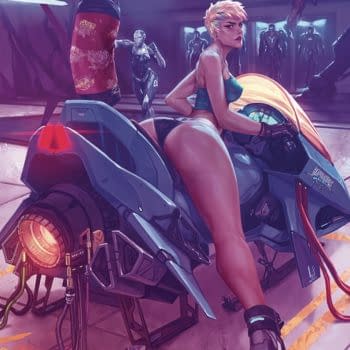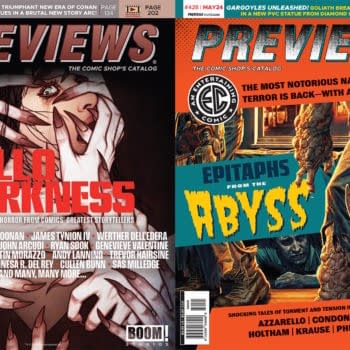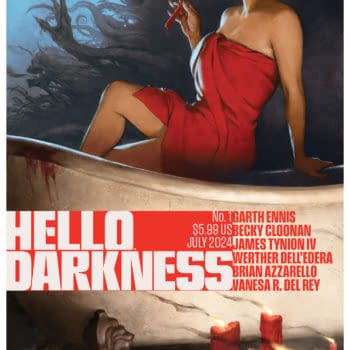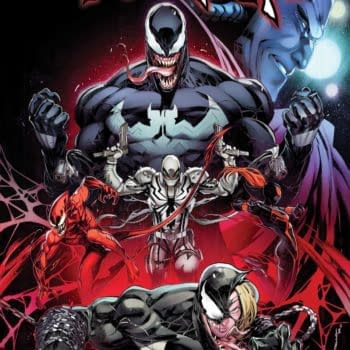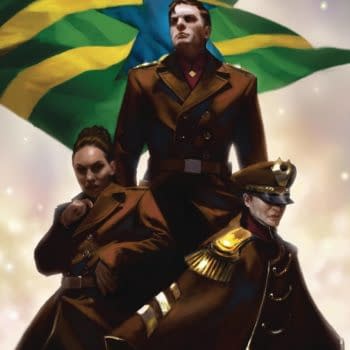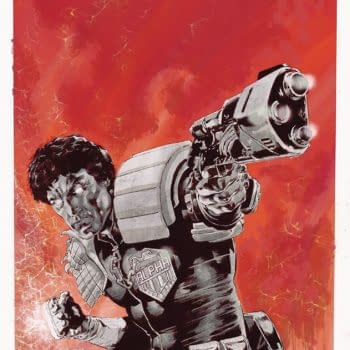Posted in: Recent Updates | Tagged:
Something Beginning With D by Alisdair Stuart: Mutant City Blues
I read the first collection of Chew this week which, given the week also saw my introduction to the wonderful world of food poisoning, may not have been the best idea in the world. It's a great book though, one where the hype is well and truly deserved and the art and the script are light and spry enough to do horrible things with elegance and wit. If you're not a fan you should check it out and if you are, you should check out Mutant City Blues too.
Mutant City Blues is the latest addition to Pelgrane Press' GUMSHOE system. GUMSHOE is, in turn, the best kept secret in mainstream tabletop roleplaying, a system that takes as it's starting point the belief that roleplaying should become something more than kick in the door, kill the monster and steal the treasure. In GUMSHOE, health, combat skills, agility, perception, all the traditional maxed stats and powergamer bait of a standard game are replaced by two very simple, completely revolutionary ideas: Your characters are very smart, and they are very good at what they do Investigation and, by extension, story, are key here and the system has already proved a big hit. Mutant City Blues deserves to take the system to even great heights.
The world's timeline is simple. Whichever year you start a game is the year that the ghost flu breaks out across the world. The flu pandemic that's been predicted for years, ghost flu sweeps across the planet and infects 1 in 200 people in the industrialised world alone.
But no one dies. Instead, the flu vanishes and over the next decade, something incredible happens to an increasing amount of the sufferers as they develop superhuman abilities of every stripe. Within ten years of the ghost flu, the world has changed forever as new power groups rise up and the planet struggles to deal with the very normal people with abnormal capabilities that walk amongst them. There are no secret identities, no places to hide. Superhumans are real, are public and work right next to you. Which means, sooner or later, one of them will commit a crime which is, in turn, where the players come in. As members of the Heightened Crime Investigation Unit or HCIU, they're the superhuman police officers whose job it is to police superhuman crime. It's still a world that hates and fears you but it does so as much because of the uniform you carry as the abilities you exhibit.
This police procedural element is key to both the concept and the execution with author Robin D. Laws providing a number of clever ways to ape the US TV police procedural model without coming off as The Wire: The Surveilling. For a start, the players are encouraged to suggest three sub plots for their characters to the GM, which are then worked into each scenario over time and refreshed as each sub plot is concluded. It's a really simple and strikingly effective rule that allows you to invest your characters in the scenario without giving up total control of them. It also makes people like me, who remember the staggeringly self destructive antics of Kellerman and Lewis on Homicide: Life on the Street positively tingly.
Laws also provides various watch commanders whose personalities will influence the game and how to fold standard cop show conceits, including CSI's fondness for having civilian scientists run investigations, into the game. There's even a short, densely packed set of guidelines for how to run suspect interrogations and what sort of forensic evidence will be left by different kinds of superhuman ability. This is a game which walks the line between massively comprehensive and instantly accessible and it does so superbly well.
The source material is as impressive as the rules here too, with a 'sliding' time line allowing you to advance ten years on from whatever year it is now as the game's starting point and some fascinating NPCs and power structures to slot into your campaign. The Quade Institute, the leading research facility looking into the ghost flu superhumans and Galen Birch, the world's richest superhuman are my favourites. Birch in particular is fantastic, a Bruce Wayne/Tony Stark figure who can be a tremendous asset or a tremendous enemy depending on where you want to go or what side you want your players to be on.
It's Doctor Quade and, through him, the game's treatment of it's superpowers that really impresses me though. The genius of Mutant City Blues lies in the Quade diagram, a flow chart that links every power not only to each other but to the faults that come with them. You get a set amount of points to spend on powers and each level of each one costs a set amount. You want lots? That's fine, you'll be quite good at a lot of things. You want a couple? Again, doable and you'll be extremely good with a couple of abilities. The temptation here is to spread out but if you spread out too far, that's where the problems start. The diagram is laced with character flaws, placed between certain powers so to get from here to there, you have to take them too. For example, my test character, Detective Jonas Duffy, is a forensics specialist with levels in some of the vision based abilities. He's also a voyeur, because in order to get all the powers he needed, I had to take that fault. Each one is specific enough to help your player get on a handle on them but vague enough to give you manouvering room and as a result, character creation actually gives you just that; a character. Instead of a set of stats with some abilities bolted on you get someone whose personality is shaped by those abilities, defined and, potentially, controlled by them. That's not just smart game design, that's smart writing and there's plenty of it in Mutant City Blues.
Now the dull stuff, the rules. Every skill test in GUMSHOE uses a single, six sided dice. Just one. The GM sets a difficulty number and the player rolls to get above it, 2 being easy, 4 average and 8 difficult. They can opt to spend points from a relevant pool to up the amount if they want to, meaning if you wanted to make sure you jumped over a wall, for example, and the difficulty was 4 and you had 8 points in your Athletics skill pool, you could spend 4 and add them to your D6 roll to make sure you succeed and look good doing it. The same goes for powers and the fact that the pool points for them only refresh at the end of a case means your players may showboat once or twice, but they won't make a habit of it.
Combat works in much the same way, using a brutally simple hit threshold and initiative system to decide who goes first and how badly they can hurt each other. Characters die on -12 Health so even here there's a cushion of sorts built in, allowing combat to be fast, nasty but not always fatal. Your characters will get their hands dirty, they will use their abilities, they will make mistakes and the system will punish them for it, but never unfairly. It's a rare treat to see a combat system that's as streamlined and unpleasant as this and, like the characters' mutant powers it adds to the system's feel and atmosphere rather than taking something away. This is a dangerous world, your characters are more than human but so are a lot of people. The thin blue line's still thin, it's just got a little more transhuman.
Mutant City Blues in general and GUMSHOE in particular is arguably the best system on the market at the moment and whilst it's tailored to investigative groups there's more than enough potential for creative superhuman mayhem to keep most players happy. It's a smart, easy, adaptable, innovative game that deserves to find a home in any group's schedule and lends itself remarkably well to adaptation. Whether you want to run a game inspired by The Wire (And what would The Bunk's superhuman abilities be?), CSI or any of the countless other cop shows out there, this is the game for you. Now if you'll excuse me, there's the making of some Cibopath homebrew rules I need to get back to…
Alasdair Stuart
More information on GUMSHOE and the other games produced using the system can be found here.







